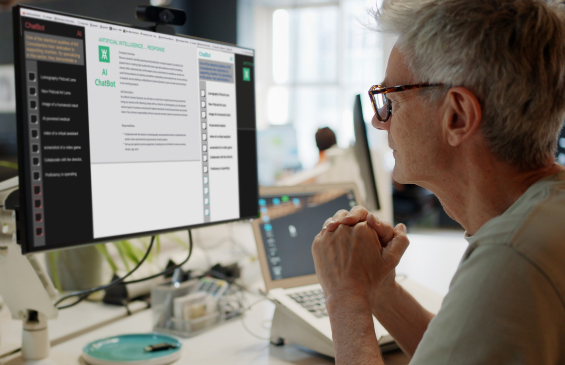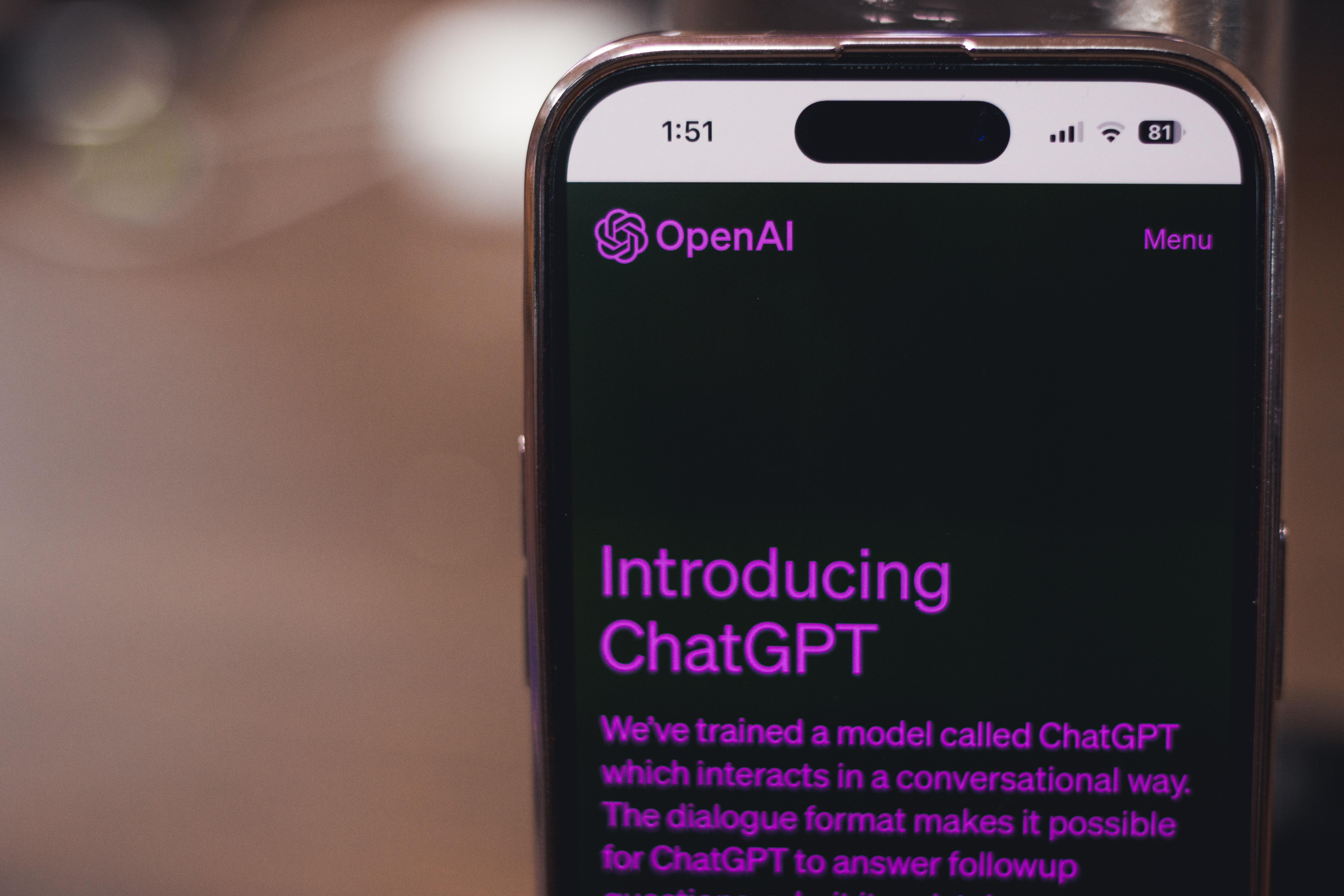Future-Proof Your Career: Why AI Skills Are Essential in the Workplace

April 30, 2024
Generative artificial intelligence (GAI) is increasingly being used across many industries to usher in productivity gains and support decision-making. It’s also freeing people to achieve new levels of creativity and innovation.
If you’re not familiar with the term “generative AI”, it refers to artificial intelligence capable of generating text, images, videos, or other data using generative models, often in response to prompts. For example, the popular tool ChatGPT can answer your questions, draft emails, hold a conversation, explain code in different programming languages, translate natural language to code, and more all based on what you ask it. Think of it like a chatbot, but a really, really good one.
To delve deeper into how these tools are being used in the workplace, we spoke with Dr. Alex Ferworn, Professor, Department of Computer Science, Toronto Metropolitan University, and Academic Coordinator at The Chang School. We also explored why AI skills are becoming increasingly important for future-proofing your career, regardless of your industry or whether you’re in a technical role or not.
Generative AI is Revolutionizing the Workplace
You might not even realize it but you may already be using some form of generative AI in your day-to-day work. While it’s not perfect, it can take some of the monotony out of certain aspects of your job, freeing up more time for creative and strategic thinking.
“Rather than spending hours coming up with how you’re going to communicate in an email with a client, you can get a response instantly generated and you can send it in the next few minutes. The client is happy and it reduces your cost and time and increases your productivity,” says Dr. Ferworn.
Some common ways generative AI is being used in the workplace include:
Content Generation
Marketing professionals might use a generative AI tool like ChatGPT to generate ideas for blog posts and other written materials. Generative AI tools like Image Creator from Microsoft Designer or DALL-E3 by OpenAI are also helping marketers to create ultra-realistic product images.
Creative Design
Designs.ai, for instance, assists graphic designers with developing new ideas, layouts, and even designs.
Image Editing and Restoration
Restoration artists might use a generative AI tool like Piscart to restore missing parts of images, enhance low-resolution images, or convert images into different artistic styles like Fotor.
Personalized Recommendations and Virtual Try-On
Retailers are increasingly using AI to help their customers shop better when they can’t visit a brick-and-mortar store or if one doesn’t exist. For example, websites will often make personalized recommendations based on your past purchases and browsing habits. This will help you discover products you might genuinely like. Other companies, like eyewear manufacturers, offer “virtual try-on” experiences using your laptop or phone camera to generate a realistic image of you wearing their product.
With that, here are some strategies for leveraging and learning more about how to use AI in the workplace and to advance your career.
Upskill Your AI Knowledge
One of the easiest ways to upskill your AI knowledge is to play around with the many free generative AI tools available on your own time.
“Just go to one of these generative AI platforms and start asking it questions. You’ll be surprised how accurate most of the answers are coming back,” says Dr. Ferworn. “I always find interesting things happen between two topics.”
Dr. Ferworn went on to explain how insights into how generative AI works can be found simply by asking variants on simple questions. “If you ask GAI how to unclog a clogged drain and then go further to ask why clogged drains exist in the first place (which is more of an existential question). [ChatGPT] will wax poetic about why clogs exist, what causes them, and ways of unclogging them.”
If you’re looking for a more formalized introduction or to learn more about generative AI, you could consider taking a microcredentials course, participating in community forums like Kaggle, GitHub, or Stack Overflow, networking with AI professionals and experts, as well as attending workshops, conferences, and webinars.
Embrace the Change AI Brings
In our connected world, digital technologies, AI, and automation are interlinked with one another to the point where most of us don’t even think about it. That said, even if you teach yourself a little bit more about generative AI tools, you can enhance your marketability and potentially future-proof your career.
Depending on your industry, you can learn more about how AI helps optimize specific challenges like supply chain management, healthcare outcomes, financial risk assessment, or revolutionize customer experiences. To boost your career opportunities, find ways to leverage AI in your role to drive innovation, increase operational efficiency, and deliver tangible business results.
Learn as much as you can so you remain relevant with your skill set and valuable in the workplace. And keep in mind, this technology is always changing. “What you have to be cognizant of is this is a technology that is changing on a daily basis,” says Dr. Ferworn. “As a society, we’re not used to that kind of speed of improvement.”
AI skills are no longer something that can be ignored – they’re indispensable in today’s job market. Having the knowledge and experience of using AI in the workplace offers a pathway to career advancement, innovation, and professional fulfillment.
The power to shape the future of work by harnessing an AI skill set that’s relevant to your role and industry is in your hands.

